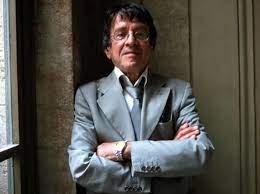Acquaviva, Sabino

Bio: (1927-2015) Italian sociologist. Sabino Acquaviva studied at the University of Trent, taught at the School of Political Science at the University of Padua, and later became the dean of that faculty. His most significant works are from the domain of the sociology of religion, and he ranks among the most important sociologists of religious experience.
In his book The Decline of the Sacred in the Industrial Society (1979), Acquaviva introduced the theoretical concept of the „eclipse of the sacred”. He defined the sacred as an experience that almost all people have when a person's feeling that what is "real" is completely different from natural reality. The experience of the sacred exists as a lived experience for each individual psychological reality. In every religion, the manifestation of the sacred (hierophany) is different, but the experience of the sacred is always the central point of any religion and any individual religiosity. The experience of the sacred is thus the basis of all religious practices and beliefs. Acquaviva connects his vision of the sacred with the existence of biologically innate psychological needs. All people need to be loved and to love, a need for knowledge, and a need to give meaning to themselves, their environment, and their lives. Due to the non-fulfillment of these biopsychological needs, the psyche activates the mechanism of sublimation, which often takes the form of religious sublimation.
Acquaviva believes that the presence of the sacred in society, but also in the individual psychic life, is measurable and that it is possible to quantify the degree of the presence of the sacred. When there is a decline of the sacred, that is, there is an "eclipse of the sacred", and then there is a progressive withdrawal of all forms of manifestation of the sacred in individual and social experience. He determined, based on data from North and South America and Europe, that in the entire Christian world, there is a decline in both church religiosity and all kinds of religious beliefs. He also researched the guerrilla movement and revolutionary war in Italy; the concept of happiness as a political project; as well as the mass media.
Main works
L'eclissi del sacro nella civiltà industriale (1961);
Religione e irreligione nell’età postindustriale (1971);
Social Structure in Italy, Crisis of a System (1976);
La modernizzazione sperata (1978);
Guerriglia e guerra rivoluzionaria in Italia (1979);
Il seme religioso della rivolta (1979);
Sinfonia in rosso (1989);
Eros, morte ed esperienza religiosa (1993);
Sociologia delle religioni: Problemi e prospettive (1996);
Giovani sulle strade del terzo millennio (1999);
Dio dopo Dio: Diario 1964-2005 (2007).
Works translated into English:
The Decline of Sacred in Industrial Society (1979, in Italian 1961).

